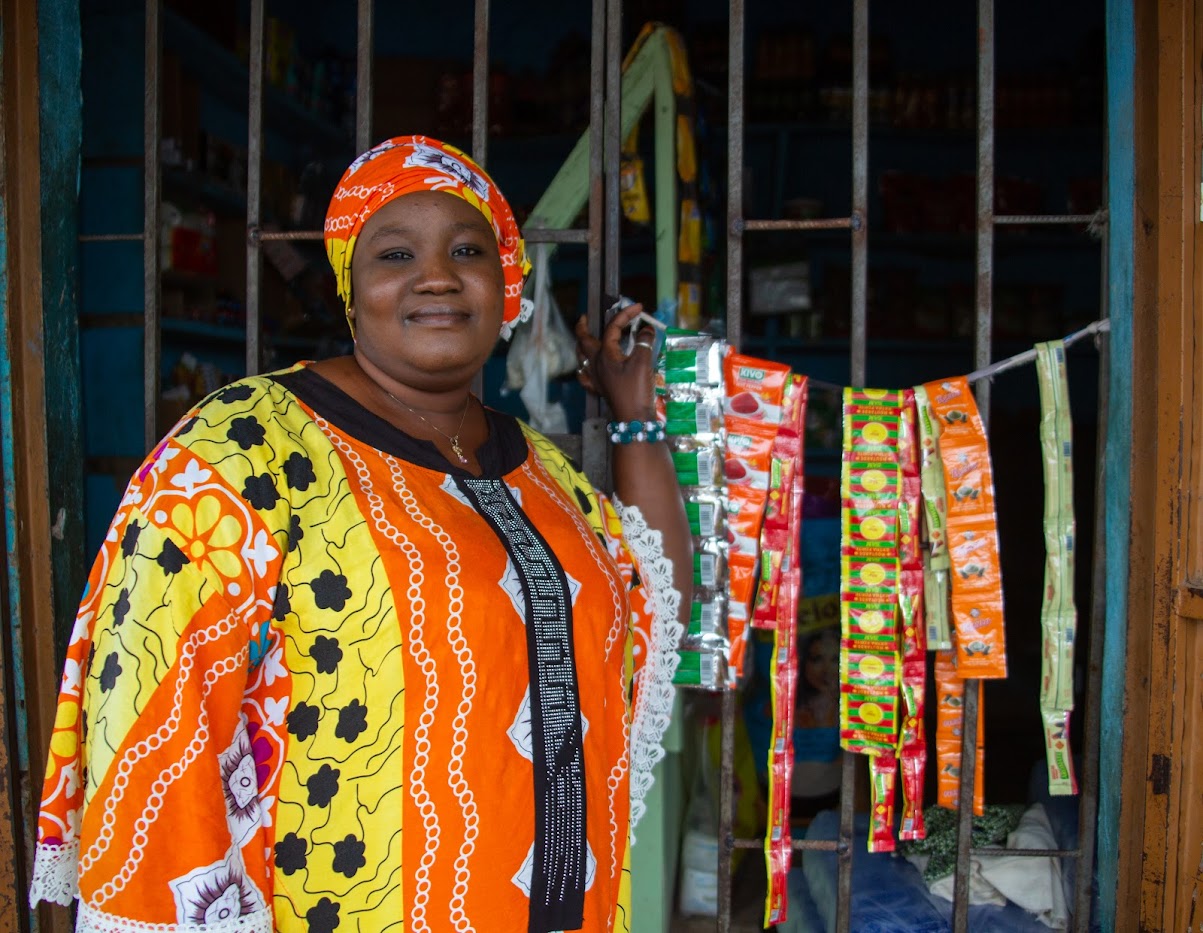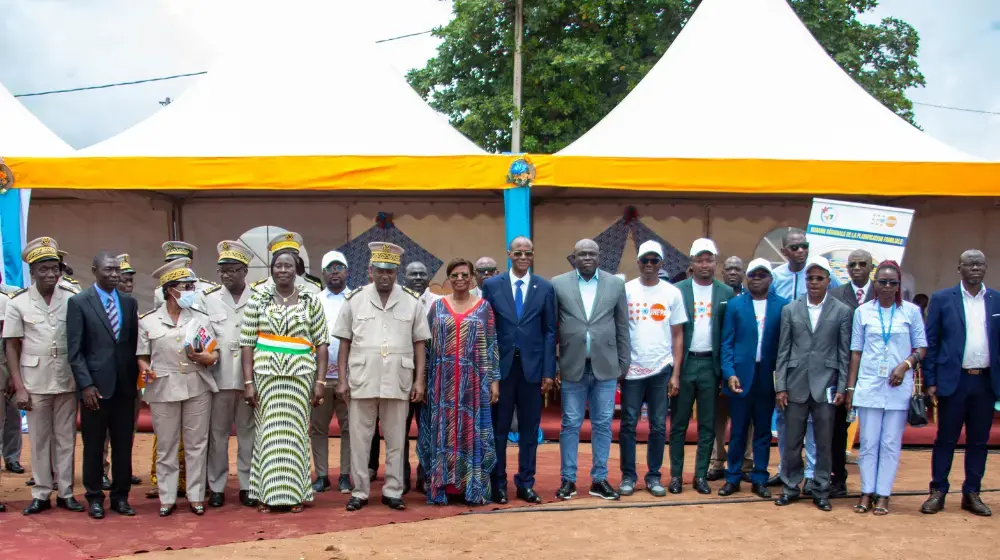Bintou and Alassane Maïga are a happy couple living in Bondoukou in eastern Côte d'Ivoire. Aged 32 and married for 12 years, Bintou is a mother of four who adopted the implant as a contraceptive method from the start of her marriage to space births and ensure the well-being of herself and her family. “I didn't want to have children in a row,” she explains, referring to her decision to space her pregnancies.
Bintou heard about family planning through television programs and discussions with her friends. Convinced of the benefits of this approach, she decided to share her thoughts with her husband. "I told him that there was a method, the implant, that could help us. It lasts from 3 to 5 years and can be removed when we are ready to have another child," she explains.
Alassane, who had prior knowledge of family planning through his doctor friends, recognized its importance for family balance. With 3 to 4 years between their children, they were able to organize their lives in such a way as to provide each of them with the care and attention they needed. "When the year comes over 4 years, even if she doesn't remember, I myself tell her to go and remove the implant," adds Alassane.
Beyond her family life, Bintou also emphasizes the benefits of family planning for her professional activity. As manager of two stores, she feels freer and more efficient in her work. "Right now, the one before her is at school, so I'm just looking after my youngest. I can do everything: I cook, I go to the store and I sell quietly", she testifies. Using the implant has given her the freedom to juggle her maternal and professional responsibilities.

Figure 2: Figure 2: Mrs Maïga in front of her store
Despite the many benefits of family planning, many obstacles remain. Cultural beliefs, social pressure and poor access to information are all factors that can hinder the adoption of contraceptive methods. With this in mind, Alassane's advice to other men is simple: "If your wife has heard of family planning, come and explain it to her. If you don't know, or if you are worried about any issue, you can go with her to ask questions, and they will explain it to you at the hospital. You will understand better and you will know that there won't be any problems.
Bintou's story sheds a reassuring light on the efficacy and safety of contraceptive methods: "Using a contraceptive method doesn't prevent you from having a baby, it doesn't give you an illness. The proof is that I have never had a problem. I have all the children I want to have. "
The couple want to encourage other families to adopt family planning, as it gives each child the attention they need, protects the health of both mother and child, and maintains harmony within the home. With this in mind, the Ministry of Health, Public Hygiene and Universal Health Coverage, the Gontougo Regional Council and UNFPA have organized a Regional Family Planning Week from October 23 to 27, 2024 in Bondoukou and other towns and villages in the region.
This week of intensified activities offering free family planning, reproductive and maternal health services, including screening and management of STIs/HIV, precancerous cervical lesions and surgery for obstetric fistula, reached over 15,000 people, 7,387 of whom received a modern contraceptive method, and raised awareness among 38,000 inhabitants of the Gontougo region.
In Côte d'Ivoire, joint efforts by the government and UN agencies, mainly UNFPA, have enabled significant progress to be made in family planning. According to the 2021 Demographic and Health Survey, unmet need for family planning has fallen significantly, from 27% in 2012 to 22% in 2021, and the 2022 Track 20 Report shows that Côte d'Ivoire is one of 13 countries where the number of contraceptive users has doubled since 2012.
Regional Family Planning Week is an ambitious strategy initiated by UNFPA since 2023 and organized in collaboration with local authorities. It aims to reduce the high number of early pregnancies, encourage the use of modern contraceptives, and mitigate the risks associated with high fertility by offering intensive, free family planning services right up to the last mile, for the benefit of populations, particularly the most disadvantaged.





